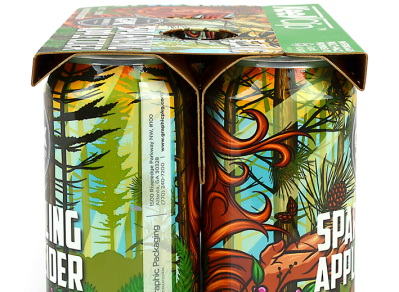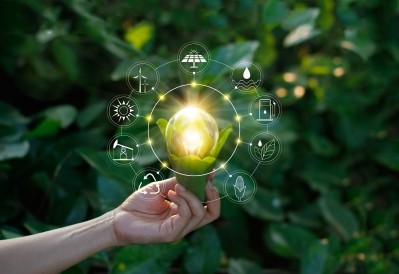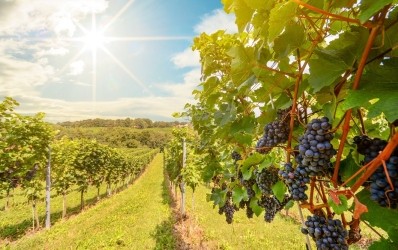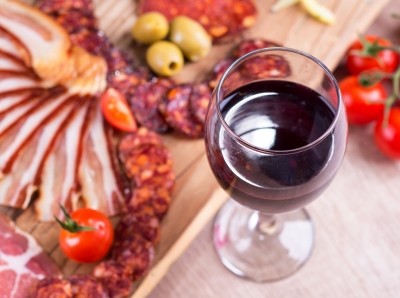Which companies have the most ambitious plastic packaging reduction targets?
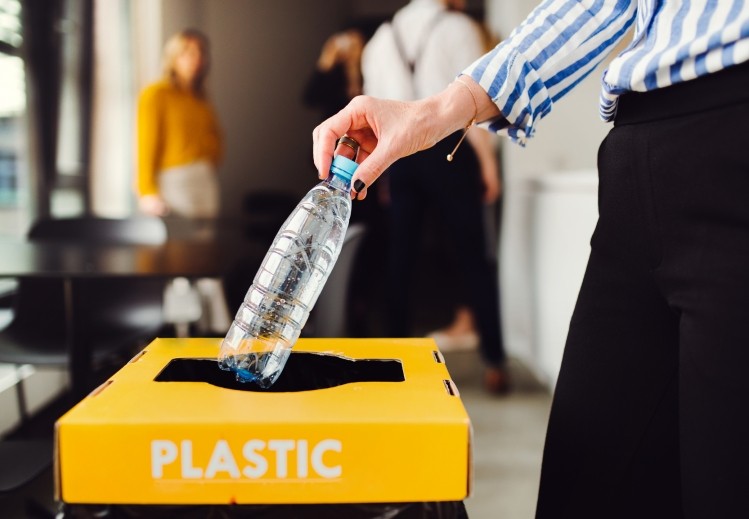
It's very hard to compare targets across companies of different sizes, regions, portfolios, baselines and definitions. It is interesting, however, to compare the goals the biggest companies believe they can achieve.
We take four of the most pressing areas for beverage companies and look at the goals the big companies have set. These companies are:
- Coca-Cola (global targets - ie beverages)
- PepsiCo (global company-wide targets - ie across beverage and snack portfolio)
- Nestlé (global targets across its whole business, which includes Nestle waters and Nespresso but also its wider portfolio from health science to pet care)
- Keurig Dr Pepper (the North American beverage company's combined portfolio of the former Dr Pepper Snapple's soft drinks and Keurig Green Mountain coffee)
- Danone (global company-wide targets - ie including Danone Waters but also dairy and nutrition)
Recyclable packaging
Beverage giants are unified in their goal to make all packaging recyclable by 2025. In some respects this seems like an easy target – a lot of packaging such as plastic bottles and cans are already technically recyclable. But there are other components – notably caps and closures and sleeves – which, at the moment, are not always recyclable.
Note that ‘recyclable’ is not the same as ‘recycled’ – while it means a container can be recycled, it doesn’t mean that it actually is. Nor does the fact that a container is ‘recyclable’ necessarily mean there is the infrastructure is there in every single local market to recycle every single type of packaging.
Coca-Cola | “We aim to make our global packaging 100% recyclable by 2025”. (According to a 2018 progress report, 88% of its consumer packaging is currently recyclable) |
PepsiCo | “Design 100% of packaging to be recyclable, compostable or biodegradable by 2025” |
Nestlé | “Make 100% of our packaging recyclable or reusable by 2025” |
Keurig Dr Pepper | “Convert to 100% recyclable or compostable packaging by 2025” |
Danone | “Our goal for 2025 is for every piece of packaging—from bottle caps to yogurt cups—to be reusable, recyclable, or compostable”. (As of 2017, 86% of Danone's total packaging - and 77% of plastic packaging - was reusable, recyclable, or compostable) |
Collection
A recyclable container is not necessarily recycled. Various initiatives are under way to encourage consumers to recycle – although measuring their success is always going to be difficult. Proponents of plastic bottles will argue that its not inherently the plastic bottle itself that's the problem: it's that plastic bottles often aren't recycled, ending up in oceans or landmass where they take hundreds of years to decompose.
In terms of clear targets:
Coca-Cola | “We plan to collect and recycle a bottle or can for every one we sell by 2030.” (In 2017, 57% of bottles and cans Coca-Cola introduces into the market place were refilled, collected or recycled) |
Danone | “We will actively help to meet or go beyond collection targets set by regulators, like the EU’s expected 2025 target of 90% collection for beverage bottles” |
rPET
One of the biggest problems with plastic bottles is the use of virgin – ie newly created – plastic from oil. Using recycled plastic – rPET – reduces the need for virgin plastic.
A key challenge, however, for bottles using rPET is the availability of enough high-quality, food grade plastic to reach the necessary structural and safety requirements of plastic bottles. Therefore, rPET goals are often accompanies by other initiatives – take for example Coca-Cola’s deal with Loop Industries – to increase supply of suitable rPET in order to meet goals.
Coca-Cola | The company aims for its bottles to be made from 50% recycled content on average by 2030 globally. |
PepsiCo | PepsiCo will increase recycled content in plastic packaging to 25% by 2025; as well as reduce 35% of virgin plastic use across its beverage portfolio by the same year |
Nestlé | Nestlé will increase the amount of recycled PET it uses across its brands globally to 50% by 2025. |
Keurig Dr Pepper | KDP will use 30% post-consumer recycled content across its packaging portfolio by 2025 |
Danone | By 2021, Danone will launch 100% recycled PET bottles in all its major water markets. By 2025, it will reach an average of 25% of recycled material in its plastic packaging; rising to 50% on average for its water and beverage bottles; and 100% for evian bottles. (In 2017, Danone used an average of 14% recycled PET for its water and beverage bottles) |
New materials
Developing new materials is seen as the exciting side of sustainability - think clever scientists in labs creating the perfect alternative to plastic and eliminating our use of oil-based materials.
In reality, new materials are complex and costly to develop. And while reducing the use of virgin plastic is unarguably crucial, new materials have to be critically addressed. How energy intensive new materials are to produce? Are they recyclable - and/or recyclable in existing packaging streams? And are they economical to produce (ultimately a necessity if they’re to make a large-scale impact).
And while plant-based plastics sound like a winner, increased pressure on resources to feed the planet means it's necessary to find a way to grow plants for plastic without taking away land for crops.
Given the complexity of the challenge, there are few specific targets, but a number of big projects under way.
Danone, Nestle and PepsiCo are part of a research consortium, the NaturALL Bottle Alliance, alongside bio-based materials company Origin Materials. The alliance has one core goal: the development of packaging made with 100% sustainable and renewable resources.
The Nestle Institute for Packaging Sciences was created in 2019 to develop sustainable packaging materials and collaborate with industry partners to scale-up research and innovation. It is exploring new paper-based materials as well as biodegradable/compostable polymers that are also fully recyclable.
Coca-Cola has been developing its PlantBottle over the last decade. PET is made by mixing two raw materials: monoethylene glycol (MEG) and terephthalic acid (PTA). These traditionally come from oil or petroleum. In PlantBottle, the MEG comes from renewable sources. PTA is still derived from oil-based materials, the next generation of PlantBottle will also use bio-based PTA.
References: Coca-Cola (and the World Without Waste strategy); PepsiCo; Keurig Dr Pepper; Nestle; Danone
